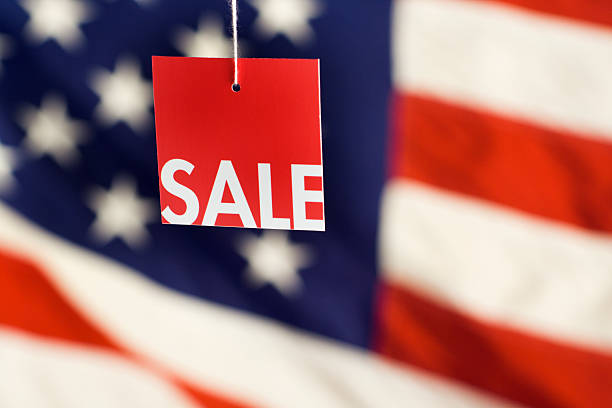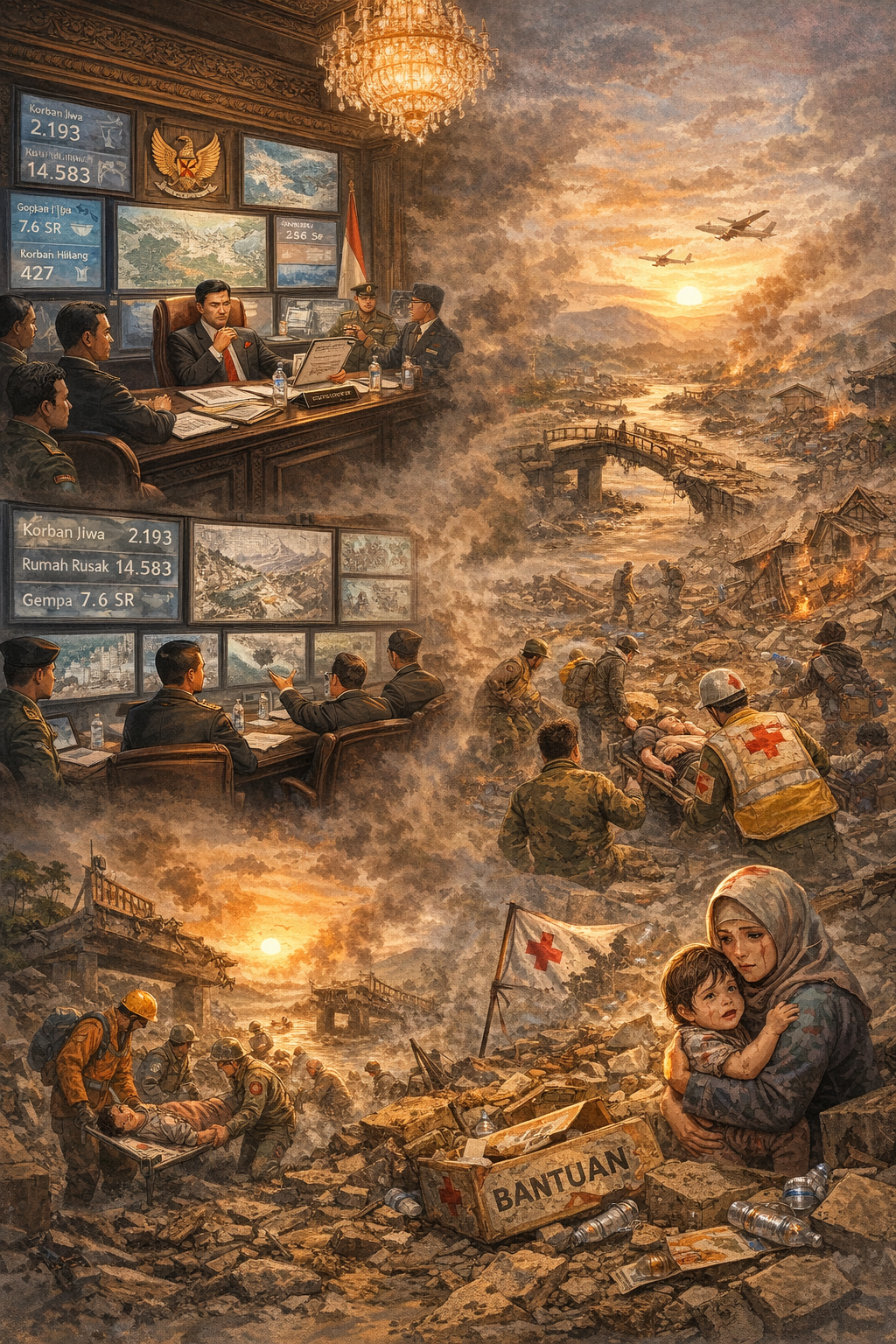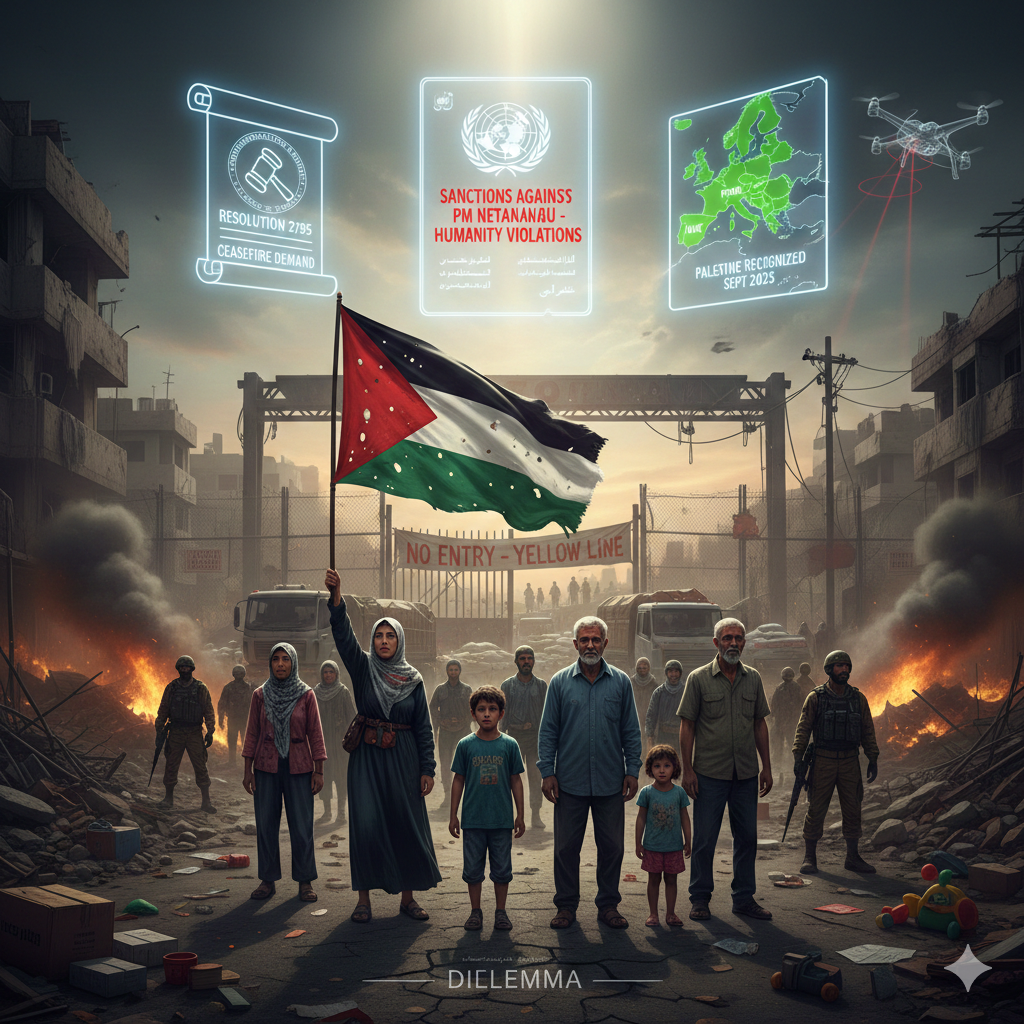Andi Noor Faradia Syarifin
Peace & Conflict Studies
Ankara Sosyal Bilimler Üniversitesi
Once, we placed our faith in democracy, believing it to be the most moral and positive peaceful path. But the ideal of democracy has worn thin, its contradictions filled with hypocrisy by the powers once championed it. When moral authority eroded, the world turned to something seemingly more stable: the economy.
The assumption was that interdependence through trade would keep nations from clashing. Markets would do what ideology could not, bind countries together in mutual benefit. As long as everyone played fairly, peace could be maintained not through trust, but through systems, through contracts, institutions, and the invisible web of global commerce.
But then came Trump.
His trade wars and sweeping tariffs didn’t just damage bilateral relations. They cracked the very foundations of what economists call the impersonal economy, a system that relies not on personal goodwill, but on enforceable contracts and third-party institutions that ensure mutual gain.
This raises a fundamental question: what is peace? Is it merely the absence of war? Or is it a system, one carefully constructed and maintained, that enables countries to coexist, not because they love one another, but because the cost of conflict is too high?
Many global conflicts haven’t ended because moral clarity finally prevailed. They ended because conflict disrupted trade. Painful reality; negative peace is the foundation of today society.
Impersonal economies foster peace, at least negative peace, because they remove the need for personal trust. As we’ve previously discussed, they allow countries, even ideological adversaries, to transact safely, knowing that the system, not the individual, will protect their interests. Trade has long been the silent diplomat. It discourages war not through empathy, but through economics. Nations avoid conflict when they know it will cost them stability, growth, and wealth. But this structure is fragile. When a powerful actor imposes high tariffs unilaterally, it sends a signal that the rules no longer apply equally.
A party with a dominant bargaining position setting higher tariffs can significantly disturb this system. It interferes with existing contracts, undermines predictability, and disrupts the flow of goods. This transforms trade from a cooperative activity into a zero-sum game.
Economic theory, and centuries of observation, support this: the greater the gains from trade between two nations, the more costly it becomes to engage in conflict. Tariffs reduce those gains, especially for the weaker party, removing the incentive for peace. They can worsen the terms of trade for the target country, much like war would. The economic pain can foster resentment, instability, and a search for alternative alliances, or even conflict.
This is not abstract theory. During apartheid, South Africa didn’t collapse because white leaders had a moral awakening, it collapsed because sanctions and divestments hurt their wallets. Trade sanctions became more powerful than any speech about human rights.
Tariffs, though legal, can function in the same way, as economic coercion. Because force can be seen as a kind of transaction (Give me what I want or face violence) conflict is just another term of “trade gone awry.” Tariffs seem to benefit the dominant party’s domestic industries but create welfare losses everywhere, including the dominant party on the long run. When the costs of cooperation outweigh the benefits, nations begin to exit the system, either quietly or with force. Countries reassess their alliances. Old enemies become potential partners. And geopolitical lines begin to blur.
This erosion is especially dangerous in today’s context:
– A re-emerging ideological war
– Copyright wars blurred
– Tech and space races escalated
– Authenticity grew endangered
Even culture reflects the exhaustion: movies and series are busy making a remake rather than dare new ideas. It’s like we’re clinging to familiarity in a system waiting to burst.
Once, media outlets were factories of truth; now truth and falsehood blend into consumable myths. We don’t just live in post-truth, we embrace our own manufactured lie as the only reality.
The problem is deeper than just lost trade volume. It’s about the loss of legitimacy. When powerful actors act as “spoilers,” using their position to bend the system to their will, it erodes trust, much like spoilers in peace negotiations who derail progress for self-interest. Other nations, especially those already skeptical of Western double standards, begin to seek alternative paradigms of power, ones not rooted in Western liberalism or free trade. Because It’s impossible to reason with tantrum baby holding a gun.
And retaliation follows. Tariff wars spark counter-tariffs. Mutual grievance replaces mutual benefit. The impersonal system collapses back into personal politics, into nationalism, protectionism, and suspicion. One day, We will look back at a time when we clung into peace without justice, stability without trust, the whole shebang of the negative peace and say “ah, what the good old days” compared to when economic systems fall apart, not with bombs, but with broken agreements.
This is the kind of post negative peace we are now entering: a cold equilibrium where nations tolerate each other but no longer trust the system. Where stability is maintained not through shared belief in the rules, but through fear of what happens when they break.
If peace is indeed for sale, and the currency is changing, the question is no longer whether we can afford it, but whether the system is still built to sell it fairly. Because if powerful actors continue rewriting the rules, the rest of the world may decide to walk away from the table altogether. Trump could be the bug that force the world’s operating system to reboot, but I bet it won’t be pretty.
Has this happened before?
Look at history. Patterns often repeat in century-long cycles.
Today, the West increasingly reveals its hypocrisy. The lofty ideals of human rights and empathetic democracy now ring hollow to many. It reeks of the ghost of century past, born from the depressed of the 1930s. but remember what followed after the great economic depression? can we still stir the course to avoid the iceberg? Or did we just buy a ticket to the sinking Titanic?
References:
Mcdonald, P. J. (2004). Peace through trade or free trade? Journal of Conflict Resolution, 48(4), 547–572. https://doi.org/10.1177/0022002704266117
Mousseau, M. (2012). The Democratic Peace Unraveled: It’s The Economy.
Polachek, S. W., & Seiglie, C. (2007). Chapter 31 Trade, Peace and Democracy: An Analysis of Dyadic Dispute. In Handbook of Defense Economics (Vol. 2, pp. 1017–1073). https://doi.org/10.1016/S1574-0013(06)02031-X
Ray, J. L. (1998). Does democracy cause peace? Annual Review of Political Science, 1, 27–46. https://doi.org/10.1146/annurev.polisci.1.1.27
Reiter, Dan., & Stam, A. C. . (2002). Democracies at war. Princeton University Press. Webel, C., & Galtung, J. (n.d.). Handbook of Peace and Conflict Studies.
Editorial by Roma Wijaya


